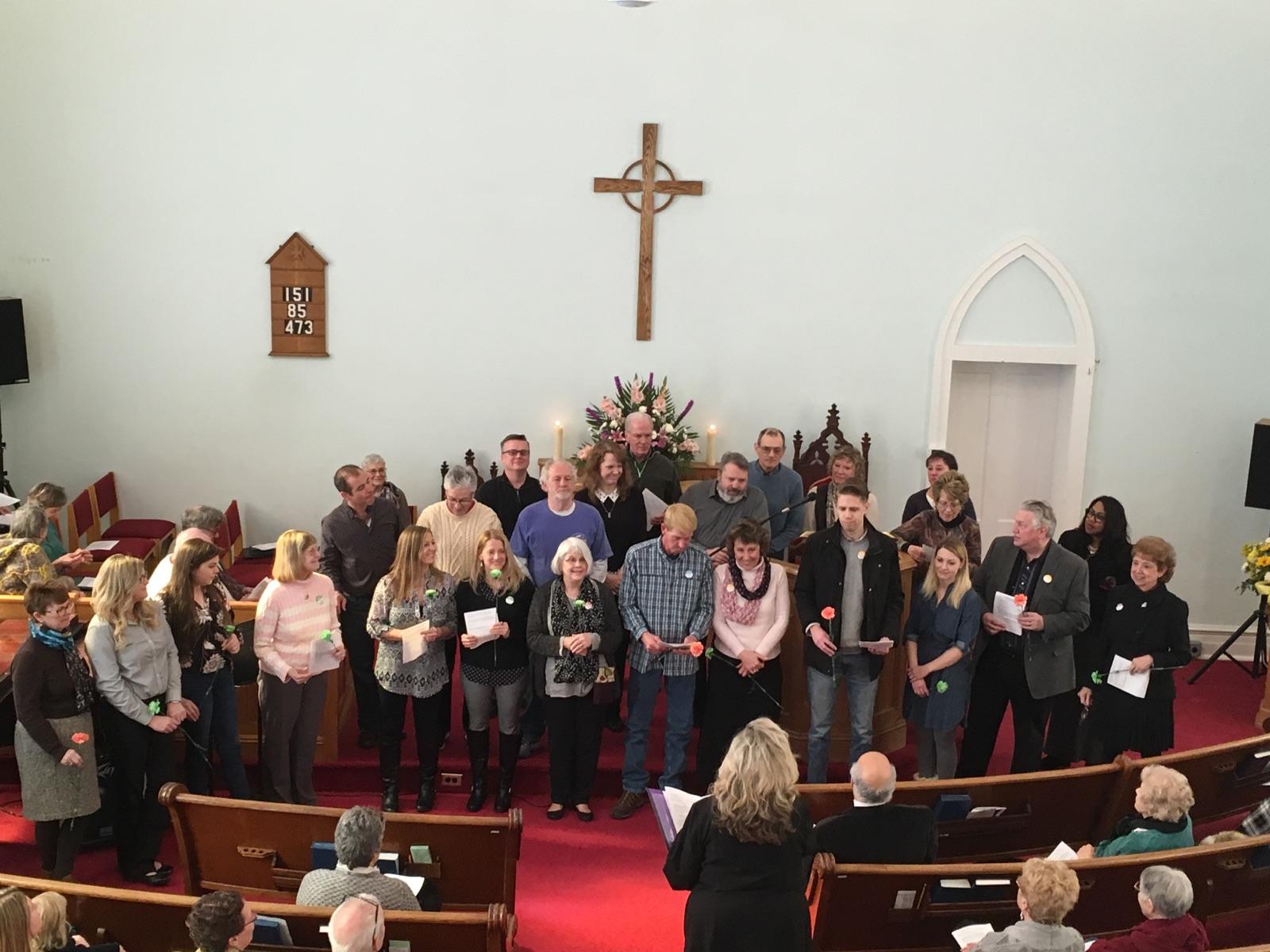“Pilgrim’s Progress”
Newsletter November 2018
Dear Brothers and Sisters in Christ,
I want to address what’s happening in the world, the violent manifestation of hate in word and deed, in church, this Sunday, November 4. In this monthly newsletter, however, I want to deal with a “softer subject” concerning ministering to hikers.
I spoke with Pilgrim, one of our hikers who visited a couple of weeks ago while driving back to Mississippi. I’ve shared bits of his story during the last two weeks in church. But after attending the fundraiser at Lisa’s, we spoke at length about something that no other hiker had spoken to me about since very few hikers who complete the AT have the time or the opportunity to return to share about their experience. Pilgrim talked to me about “Post Trail Depression.” What Pilgrim shared with me affirms our faith and may help us when we minister to these sojourners.
In Pilgrim’s words: “Every day hikers wake up with a goal—to make it to Mt. Katahdin, to the finish line, and when they get there they realize that there’s nothing there but rocks and holes. They had a goal, or goals to reach every day, but they didn’t really have a purpose, I mean it didn’t have meaning. Hikers talk about how hiking the trail ruined their lives, so they had to keep going, hiking other trails. It becomes an addiction. They have a difficult time going back to the lives they lived before hiking the trail.”
As he spoke, it was as if I could see and feel what he did—that final step on the mountain, the exhaustion in his bones, the tightness of his muscles, the sweat on his brow, the emotional surrender, the long pause before climbing back down through the wilderness, feeling more homeless than ever.
“Part of it is, I think, because hikers are always moving and when they go back to their lives, they don’t move as much and they don’t want to go back to that,” he continued.
Now Pilgrim hadn’t lived a conventional life prior to taking to the trail but I could sense in him a reluctance to return to life as it had been, after all he had left that life for a season on the trail due to some restlessness, some discontentment.
He said, “The lesson I learned is that hikers find purpose in the hike. They are moving everyday, meeting new people, sleeping in different places every night—and they are working toward this goal and think that by the time they get to Katahdin that they’ll have all of this conclusion and all things answered, that they’ll find the ultimate purpose, or meaning. But when I was there all you get is a bucket of stone and you say to yourself, ok, where do I go from here? What am I going to do now? There’s no blazes to tell you where to go now, or where to stay, or who to meet. You can have purpose in your life, but not meaning. It’s like a body builder who lifts weights to get stronger but who only does it to look better, not to serve some greater purpose. It’s self-absorbed.”
And here’s what he concluded that will bless everyone of us:
“Meaning can only transcend from Christ; everything outside of Christ goes to waste—ultimately it’s Christ that brings meaning to life.”
He spoke of the trials (not trails) of life—how life is full of them and how you don’t have to go 2200 miles looking for one.
“So many people focus on the trail and they think they’ll find meaning, but there’s always another trial. You get to the end and you realize there’s nothing there, yes, you had a great experience but it doesn’t have meaning in itself, it solves nothing. So they look forward, they go on another hike—get their triple crown—walk the Pacific Crest Trail, the AT, and the Continental Divide Trail. They love the process but they keep walking in a circle. I too went to AT looking for fulfillment, for what’s next, that’s what drew me, those deep-seated questions, to find meaning in it. But I learned what Christ taught, that the quintessential element of life is love, to love God and love one another, if we can just work on that in any trial that we’re in, which usually involves other people. People just don’t know where to look.”
All I can say is Amen.
Pastor Sherry

